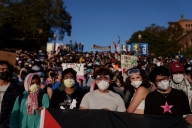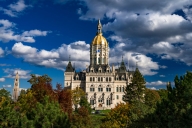You have /5 articles left.
Sign up for a free account or log in.
It has become trendy if not clichéd in recent years to declare that higher ed is the next "bubble" in the American economic system will pop. This view has been particularly dominant in business publications. Forbes has run columns about the coming higher ed bubble, or why a higher ed bubble should be coming, numerous times (see here and here and here and here and we could go on). Many of those articles predict that one or more "disruptions" in higher education (online learning for example) will be key to the higher ed bubble popping.
So we were surprised on Sunday to read in Forbes that the bubble might not be traditional higher ed. A column that starts off by bemoaning the high cost of elite private higher education ends up noting that students go to college (and parents pay for them to do so) for a lot of reasons other than just the learning in the classroom. Students get connections and they value "the experience," writes a staffer for the magazine. The piece may not please all professors and college administrators because it suggests that students want a fun experience, not just the personal educational experience. But based on this conclusion, the author writes: "There’s no college-education ‘bubble’ forming simply because teens go to college with an eye on a fun four years, after which they hope the school they attend will open doors for a good job. Online education only offers learning that the markets don’t desire, and because it does, its presumed merits are greatly oversold. There’s your 'bubble.' "
Could this be the start of the bursting of the higher-ed-bubble-story bubble?








